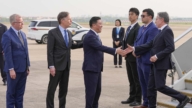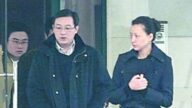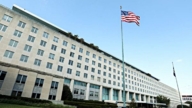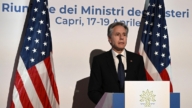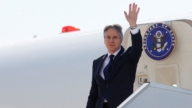【新唐人2013年09月12日訊】9月10號,中共國務院總理李克強在大連出席2013夏季達沃斯論壇的企業家代表時誓言:要用壯士斷腕的決心繼續推進經濟體制改革。分析認為,中共已經身患絕症,癌細胞擴散全身,李克強即使「斷腕」,也無法治本。
李克強說,經濟改革既蘊藏著巨大紅利,也是觸動利益的事情,因此也是挑戰。但是,中共當局將用「壯士斷腕」的決心,繼續推進改革。
時政評論員汪北稷:「中共不但是在政治上高度腐敗跟獨裁,也是在經濟上高度腐敗和獨裁,李克強所要維護的,所要「壯士斷腕」,也是這種高度的政治跟經濟雙重獨裁的政權,並不是一個開創全新的政治局面和經濟局面的健康社會的改革。」
北京時政觀察人士華頗分析,李克強的講話是針對中共的幾個利益集團,他想要打破原來的利益格局。
北京時政觀察人士華頗:「單從經濟改革的層面來講,他再深入那就是要分,既得利益集團的蛋糕了,所以既得利益集團必然會進行瘋狂的反撲,我想這種改革也是舉步維艱的。」
早在3月17號的新總理首場記者會上,李克強就曾誓言,改革進入「深水區」,對政府削權要有壯士斷腕的決心,言出必行,說到做到。
華頗:「他要『壯士斷腕』,但是這種既得利益集團這個癌細胞已經擴散到整個體制的全身,『腕子』出問題,咬咬牙把『腕子』可以去掉,但是這個癌細胞擴散到頭部了,這腦袋能夠給它砍下去嗎?」
華頗指出,現在已經不是豪言壯語喊改革就能解決問題的,而是要「先死再重生」。
汪北稷:「中共現在社會國家體制遇到的最大問題不是不經濟改革,而是不政治改革,經濟改革的成果,需要法制社會,法制的國家來保障,法制虛無飄渺的狀況下,妄談改革,妄談經濟上的動作,這是一種奢望,不治本。」
汪北稷認為,中共30年來經濟改革方面做了很多動作,口號叫的震天響,雖有一定的成效,但卻留下一個社會亂局。
汪北稷:「一方面邀請外國的資本,來中國一起分享盜取中國人民的利益,一方面把國際金融界的秩序和道德風氣向下拉,然後,整個太子黨或權貴階層,互相一起商量,分割經濟的蛋糕,像石油領域的周永康家人親戚都擺在公眾面前。」
去年,媒體就曾曝光,前中共政法委書記周永康父子利用其家族所壟斷的石油系統和政法委系統的影響力,大搞權錢交易,至少集聚200億的財富。
《紐約時報》曾報導,中共太子黨利用家族權勢,掌控中國經濟命脈並瓜分國家財富。其中,前黨魁江澤民的兒子江綿恆,他掌控的公司除了經營電信、半導體等,還是中國最大中外合作文化項目上海東方夢工廠中方投資者﹔前總理李鵬之女李小琳是中電國際董事長,兒子李小鵬曾任華能國際董事長。
中國法學家袁紅冰:「中國的所謂的經濟改革,人民所創造的財富,通過權貴市場經濟的這個機制,像滔滔不絕的洪水一般湧入到了貪官污吏的錢袋裡,由此造成的這種嚴重的兩級分化,不僅摧毀了社會的正義,同時也摧毀了人們對於道德的信心。」
香港《前哨》8月號預測中共末日將至,報導說,總結以往獨裁政權的解體過程,中共的崩潰過程將分三階段。從現在至2014年是經濟崩潰,2015年是政治崩潰,而2016年則是全社會整體性大崩潰。
採訪編輯/李韻 後製/周天
Economic Reform Cannot Cure China’s Terminal Illness
On Sept. 10, Premier Li Keqiang attended the 2013 summer
Davos Forum in Dalian as an entrepreneur representative.
He vowed to continue economic reform
with great determination.
Analysts believe that the Chinese Communist Party (CCP)
has terminal cancer, which has spread to the entire body,
and no amount of determination can help to cure.
Li Keqiang said that economic reform offers not only great
bonuses but also challenges.
However, the Party is determined to continue to move
forward with economic reform.
Wang Beijie, current affairs commentator: “The CCP
is a highly corrupt dictator both politically and economically.
What Li determines to maintain is a high degree of both
political and economic dictatorialship, not a new politically
and economically healthy social reform."
Hua Po, Beijing current affairs observer, believes that Li’s
speech was for a few interests groups,
instead of the old interests groups.
Hua Po: “In terms of economic reform, he wants to divide
the economic cake, which will force interests groups
to fight back.
I think this kind of reform will face great difficulties."
During his first press conference on March 17, 2013,
Li vowed the reform will reach the deep end, cut
government’s power and what he promised
will be carried out.
Hua Po: “Regarding special interests groups, they are
the terminal cancer that has spread to the brain.
Whatever determination Li wants to use,
he cannot cut his head off, can he?”
Hua further points out that the rhetoric of economic reform
will not solve the problem; only death and rebirth can.
Wang Beijie: “The CCP’s biggest problem is not economic
or political reform, but a state of rule of law.
A society protects the achievements from economic reform
with the rule of law.
With our current legal situation, any reform is only fantasy,
but not a cure.”
Wang believes that for the last 30 years, the CCP did many
things and loudly shouted slogans.
Despite some success, it left a social chaos.
Wang Bijie: “On the one hand, it invites foreign investment
to China and shares the profits of the Chinese people.
On the other hand, it brought down the international financial
order and moral ethos.
The entire princeling, or elite class, in China divide
the economic cake, such as Zhou Yongkang’s family
and relatives who hog the oil industry
before the public’s eyes.”
Last year, media outlets had exposed that Zhou Yongkang,
former secretary of the Politics and Law Committee,
and his son, used his position to monopolize the oil
industry and acquired at least 20 billion in wealth.
The New York Times reported that the CCP princelings
use family power to control China’s economic lifeline
and share national wealth.
Among them, Jiang Mianheng, the son of former leader
Jiang Zemin, controls telecommunications
and semiconductors, as well as invests in many large
Sino-foreign joint cultural projects.
In addition, Li Xiaolin, daughter of former Premier Li Peng,
is the chairman of China Power International.
Her brother, Li Xiaopeng, is the chairman
of Huaneng Power International.
Yuan Hongbing, Chinese law expert: “The so-called economic
reform is that after wealth is created by the people, it flows
endlessly into the pockets of corrupt officials through this
power-market economic mechanism.
Thus, it caused a serious polarization, which not only destroys
social justice, but also destroys people’s confidence in morals."
The August issue of Hong Kong’s Outpost magazine predicted
that the end of the CCP is near.
The report said that the process of the CCP’s disintegration
will be divided into three phases:
an economic collapse from now till 2014, a political collapse
in 2015, and an overall crash of the entire society in 2016.



